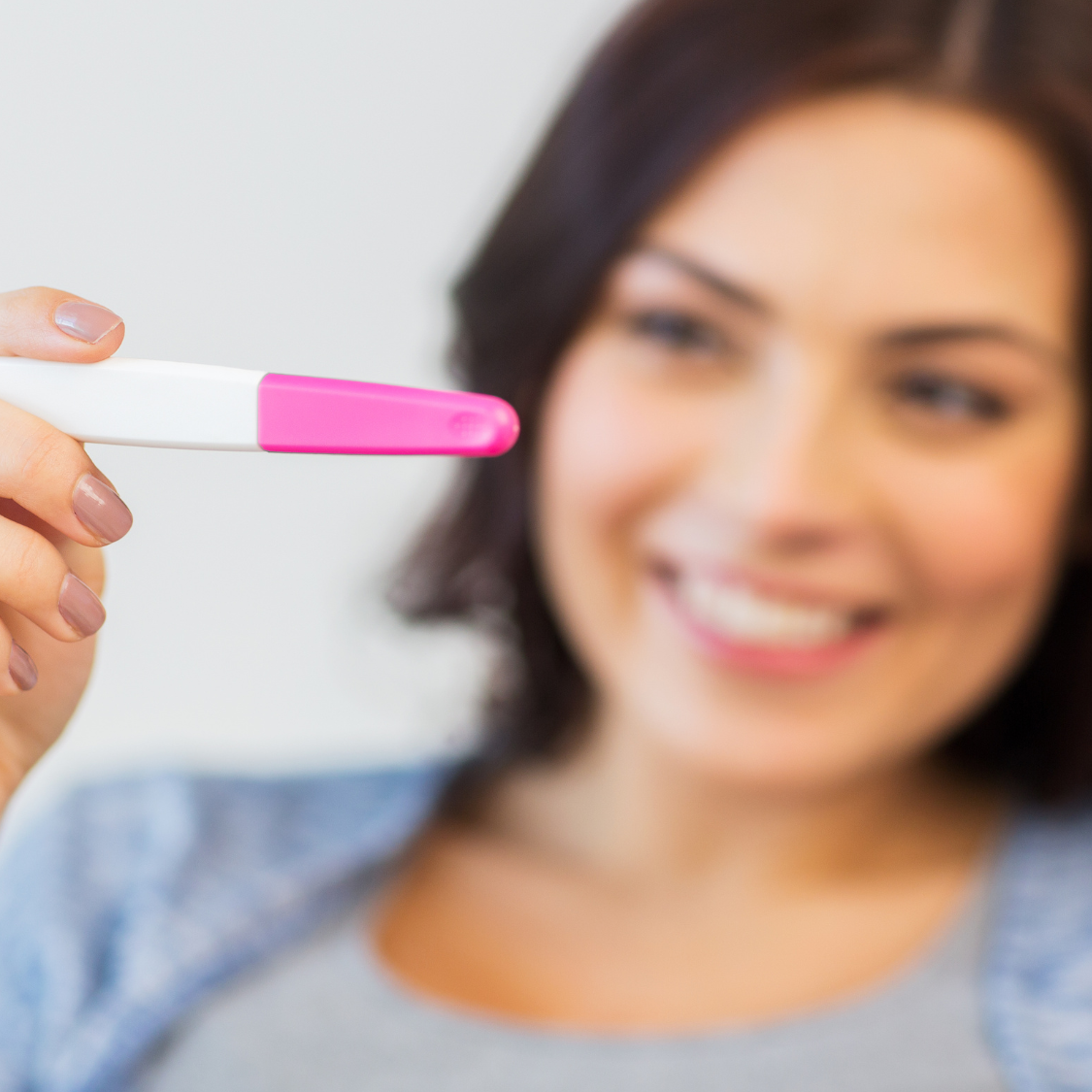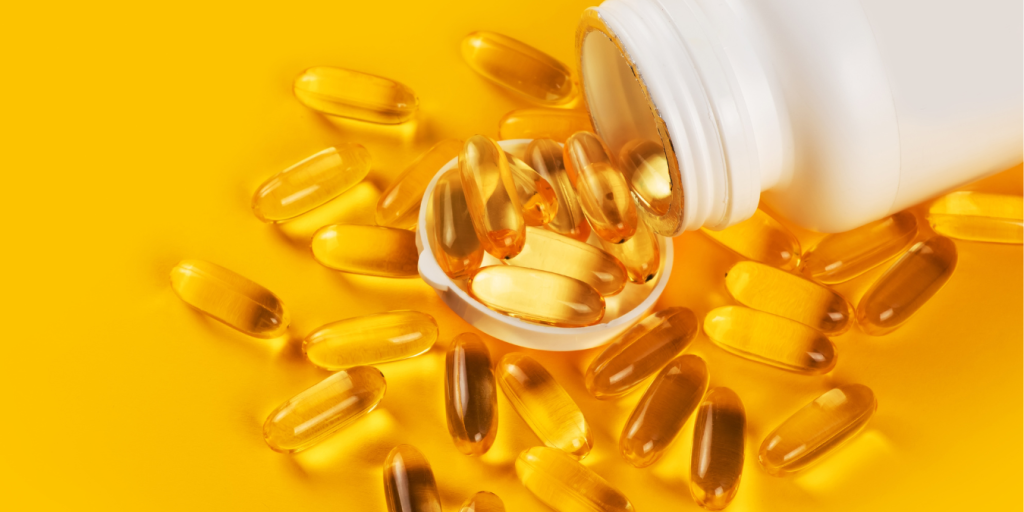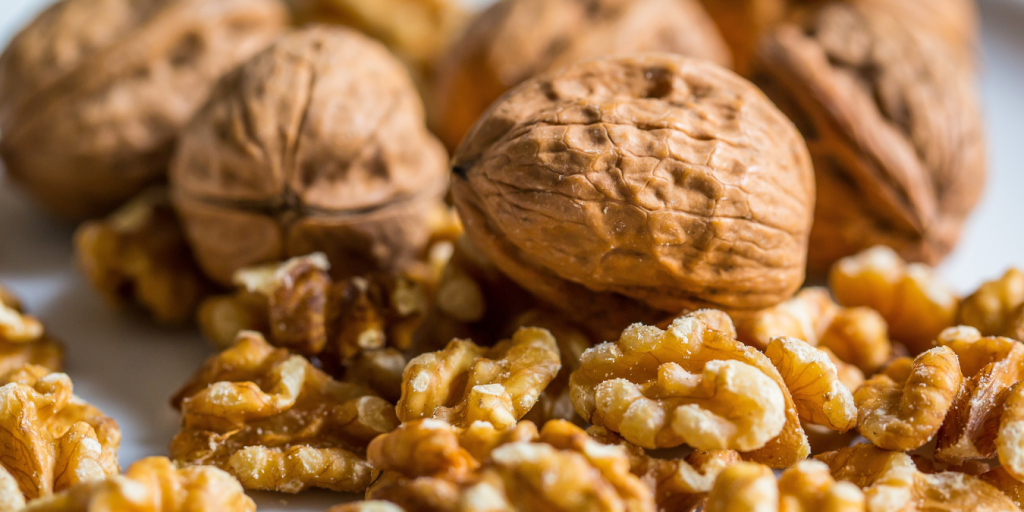

Infertility is a disease concerning both male and female reproductive organs. It can be described as the failure in achieving clinical pregnancy in a 12 month or more period. It is estimated that 15% of reproductive age couples experience difficulty getting pregnant globally. It effects 10-30% of the female population and only 7% of the male population. (Ref 1)
Inadequate diets, whether low-calorie, unhealthy or excessive caloric intake can disrupt the physiological reproductive function and greatly increase the risk of fertility. NICE guidelines also indicate body weight as an important factor in the context of reproduction, being underweight, overweight or obese can have detrimental effects on several functions of the human body, including reproductive health.
A low BMI can be a negative factor of male and female infertility. Particularly, in men, being underweight is often associated with malnutrition and an unhealthy lifestyle, which can lead to hormonal imbalance and reduced semen quality. Women who are underweight have been found to find it four times longer to get pregnant than woman who are at a healthy weight. Moreover, a low BMI can inhibit the hypothalamic-pituitary-gonadal (HPG) axis by affecting the gonadotropin-releasing hormone (GnRH) pulse generator.
Based on current research, it can be confirmed the Mediterranean Diet (MD) can have a positive influence on fertility. The increased consumption of plant-based protein, rich in antioxidants, fibre and low glucose index (GI) carbohydrates have been equally important for improving fertility. The MD diet is characterised by a high consumption of plant-derived foods such as vegetables, legumes, fruit, nuts, cereals and seeds, fatty saltwater fish, low-fat dairy and poultry and whole grain cereal products with a low consumption of simple sugars (sweets) and red meat. This is one of the healthiest dietary patterns an individual can follow and has been linked to many beneficial health effects such as decreased risk of all-cause mortality, cardiovascular disease, cancer and other chronic diseases. In terms of fertility, women of childbearing ages who adhere to the MD diet reduces weight gain and insulin resistance, therefore increasing the likelihood of obesity. Insulin directly affects the function of the ovaries, consequently insulin sensitivity and glucose metabolism may have a significant impact on ovulation and fertility.
Protein obtained from red meat and poultry has been shown to significantly increase the risk of infertility. However, there were no negative effects found from fish and egg protein. Consuming 5% of energy from plant protein instead of animal protein reduces the risk of anovulatory infertility by over 50%. This could be due to the different influence of plant and animal proteins on insulin and insulin-like growth-factor (IGF-I) secretion. (Ref 1)
Carbohydrates
Insulin and glucose metabolism can significantly affect ovulation and female fertility. Carbohydrates, especially those with a high glycaemic index and load are especially essential. It has been thought to increase insulin resistance, dyslipidaemia and oxidative stress, consequently negatively affecting fertility and the ovarian functions. This includes foods such as white bread, corn flakes, fruit juice, instant noodles and potatoes. A large cohort study was conducted in women without a history of infertility. Those who planned or became pregnant during the study, showed a higher consumption of carbohydrate at the cost of naturally occurring fats with a high glycaemic index was positively correlated associated with infertility due to ovulation disorders. This is also confirmed in other studies where the higher consumption of fibre intake, and a high consumption of simple sugars were related to lower chances of becoming pregnant.
Micronutrients
It is possible that folic acid, vitamin B12 and vitamin B6 affect fertility. Studies indicate that the supplementation of folic acid in the period prior to pregnancy may increase the chances of becoming pregnant, however further research is also required. There is evidence that fortification of cereals with folic acid increased the number of twin births in the United States. However, more research is required as studies have shown that women with unexplained fertility supplemented more folic acid than fertile women.

Vitamin D
Studies have demonstrated that vitamin D receptors are expressed in numerous tissues of the reproductive organs, such as ovaries, endometrium, placenta, pituitary gland and hypothalamus. Serum concentration may be associated with PCOS and endometriosis. In addition, the vitamin contains anti-inflammatory and immunomodulating properties, therefore being associated with endometriosis, which one of the causes of infertility. (Ref 2)
Insulin resistance may be responsible for the higher rate of miscarriage in PCOS. Vitamin D supplementation can improve this as well as the quality of the embryos. Following ovulation-induction treatment, a lower ratio of live births was found in PCOS patients with low vitamin D levels. This was increased when followed by adequate vitamin D supplementation was taken as live births increased by 2%. (Ref 3)
Minerals
A deficiency of minerals may disturb fertility, therefore men and women should pay attention to proper intake of minerals and supplement the elements they could be deficient in. Calcium, iron, zinc, magnesium, iodine and selenium are especially essential in regards to fertility.
Calcium is known to affect blood vessels, muscle contractions, nerve conduction, and hormone secretion. Additionally, for pregnant women it is important as the foetus uses the mother’s skeletal calcium for growth. Deficiency in this vitamin may also decrease vitamin D concentrations and increase the risk of hypertension and preeclampsia. Another key element is iodine, which affects the thyroid gland function and is essential for successful fertility. A study was conducted in 501 women experiencing moderate or severe iodine deficiency, pregnancy was delayed and the chances of becoming pregnant was decreased by 46% when compared with women who were not iodine deficient. (Ref 4)
Coffee and alcohol
In order to increase the chances of pregnancy, it is important to consider reducing caffeine consumption, which will also reduce the risk of pregnancy loss. According to the European Food Safety Authority, for pregnant women and for women attempting pregnancy, up to 200 mg of caffeine/d is recommended. However, gynaecologists indicate that this intake does not appear to be a main factor leading to miscarriage or preterm delivery.
On the other hand, there is evidence that alcohol consumption, especially heavy drinking and chronic alcohol consumption, has been linked to reduced fertility and a higher risk of developing menstrual disorders. A hypothesis for the negative effect drinking has on pregnancy includes altering endogenous hormone concentrations, a direct impact on the maturation of the ovum, ovulation, early blastocyst development and implantation. It is also crucial to reduce alcohol consumption to reduce adverse effects in the offspring such as foetal alcohol spectrum disorders. (Ref 4)
Walnuts: have been shown to boost ovulation and keep sperm healthy through their omega-3 fatty acids. They also contain vitamin E, which functions as an antioxidant to help increase sperm count and motility. One study has showed consuming just one handful of walnuts daily for three months produced healthier sperm.

Tomatoes: a good source of vitamins A and C and also contain lycopene which is known to improve sperm count and movement. To ensure the highest amount of lycopene is being absorbed from tomatoes, it is helpful to cook them. Heating them for just 2 minutes increases the lycopene content by 54%, after 2 minutes, this rises to 75%. However, if an individual is unable to eat cooked tomatoes, fresh tomatoes, sundried tomatoes or tomato paste it also a good option.
Beans and Lentils: these are beneficial for good sources of spermidine which is a polyamine positively associated with fertility and folate. Researchers have showed higher folate levels are associated with implantation rates of fertilised eggs and clinical pregnancy with assisted reproduction. Beans and lentils are also a good source of plant-based protein. Women who consume protein from plants have a reduced risk of infertility from an ovulation issue. (Ref 5)
Salmon: a healthy fat containing protein and omega 3, known to improve foetal development throughout pregnancy. Men can also benefit from eating salmon for its high levels of vitamin D and selenium. It is also important to consider the presence of mercury which can be harmful to a pregnancy, so salmon intake should be limited to once or twice a week. Asparagus: an extremely powerful vegetable for individuals who are trying to get pregnant. One cup of boiled asparagus provides you with over 60% of your daily recommended value of folic acid, fulfil your vitamin K value and strengthen the reproductive health with more than 20% of vitamins A, C and B. It also contains zinc and selenium. (Ref 6)
Various studies have explored the benefit of L-Carnitine in cardiovascular disease, neuroprotection, immune system function, and male fertility. When treated with L-Carnitine, improvement in sperm motility and viability were observed. It was found that male reproductive tissues exhibit higher concentrations of L-Carnitine compared to plasma, highlighting its relevance to sperm maturation and motility. (Ref 10)
The majority of supplements for male fertility contain folic acid and zinc. Zinc is essential in spermatogenesis as a component of steroid receptors and involved in DNA transcription. Whereas, zinc’s high concentration in seminal fluid suggests a link to semen quality, potentially through antioxidant functions (Ref 11)
To read more on male supplements, please see the attached blog – https://yourhealthbasket.co.uk/blog/recommended-supplements-mens-health/
Vitamin A is a crucial fertility supplement in the role of embryogenesis and to reduce the risk of teratogenicity. An excess or deficiency in this vitamin can cause critical alterations in gene expression which could lead to developmental abnormalities. Moreover, an intervention study demonstrated improved lung function in offspring of a deficient population who received vitamin A supplementation. It has also been seen to play a role in immune function and neonatal deficiency, therefore adequate intake will reduce rates of maternal infections and improve early foetal lymphopoiesis.
Vitamin A supplements:
lipolife Vitamin A particularly beneficial as it is in liposomal form, enhancing bioavailability and absorption of nutrients to directly target cells.
SFI health is highly recommended by our practitioners and supplies the preformed form of vitamin A as found in fish liver oil.
Vitamin E is a fat-soluble antioxidant and is proposed to be in conditions of oxidative stress including preeclampsia, intrauterine growth restriction and premature rupture of the membranes. Studies have also showed that vitamin E supplementation may be useful in the prevention of pregnancy-related leg cramps at a dose of 100 mg/d. In addition, it may also play a role in preventing wheezing illness or asthmatic disease in children when supplemented at a conservative dose of 8-18 mg/d/ the recommended daily intake of vitamin E for pregnancy is 11 mg in the EU and 15 mg in the US. Good sources to improve fertility include nuts and seeds, avocado, spinach and eggs. (Ref 7)
Vitamin E supplements:
Kirkman’s is a 100% vitamin E containing no animal derived ingredients and it is also soy free.
Thorne’s Ultimate-E mixed tocopherols are beneficial for individuals trying to conceive. Clinical studies affirm the superior benefits of mixed tocopherols over a single variant.
Magnesium is a beneficial supplement for increasing fertility in women as is known to inhibit preterm uterine contractions via calcium antagonism, and deficiency has been associated with increased risk of preterm labour or preterm birth. Intravenous magnesium is recommended in individuals who are experiencing preeclampsia, and lower magnesium levels have been observed in women with hypertensive disorders of pregnancy. Supplementation in magnesium-deficient pregnant women showed to significantly reduce multiple maternal and foetal outcomes, including preeclampsia, intrauterine growth restriction, preterm birth and low birth weight.
Magnesium supplements:
Magnesium citrate is easily absorbed in the body and may help regulate hormones related to fertility. Pure Encapsulations magnesium citrate powder provides a professional-strength dose of 250 mg magnesium per scoop.
Nutri advanced Magnesium as glycinate is a highly absorbable form of magnesium meaning the body can utilise it easier and faster. Magnesium glycinate is known for its gentle effect on the stomach and is popular for fertility support (Ref 8)
Finally, vitamin K is required for the biological activity of a number of coagulation factors. Neonates have a relative vitamin K deficiency at birth owing the limit synthesis in the gut. It is also an essential fertility supplement for bone formation, either by direct interaction with receptors on osteoblasts or by supporting osteocalcin/vitamin D mediated mineralisation. The best sources of dietary K1 are dark-green leafy vegetables and vegetables of the brassica family such as broccoli, Brussel sprouts and kale. (Ref 7)
Vitamin K supplements:
Vitamin K2 is beneficial for PCOS, low sperm count and prenatal development. It has also shown to reduce the severity of endometriosis. Jarrow Formulas MK-7 is the most active form of Vitamin K2 from its range.
lipolife’s liposomal form of D3 and K2 allows high absorption into the body. Vitamin K3 and D3 work particularly well together to provide several benefits for fertility, such as supporting postmenopausal women and even Osteoporosis. (Ref 9)
Accepting payments via


YourHealthBasket © 2025
detoxpeople Ltd
Registered in England & Wales 07156741
VAT reg GB 103 3641 60
Our new practitioner portal has been released and it’s now easier than ever to link a client’s account and provide them with suggestions using our new protocol system.
Convert your current cart into a protocol which can then be assigned to a linked client.